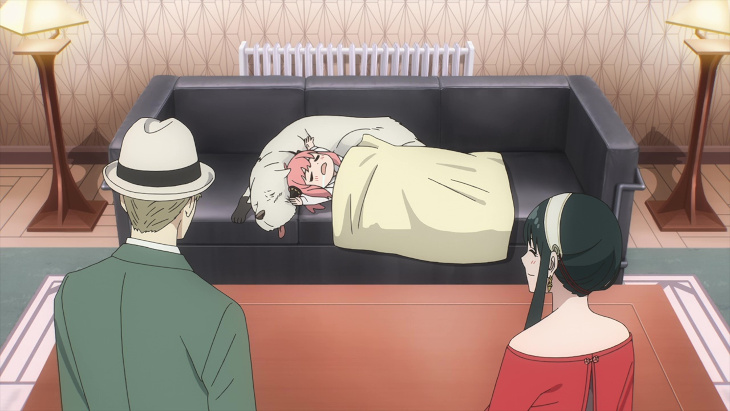
“Thinking back on Donovan Desmond… He’s indeed elusive.”
Spy x Family returned this season with more of a zany, comedic antics that had charmed viewers earlier this year. However, with its return came a broader existential question which loomed over the entire project. Is this a second season or simply the second part of the same season? I’m mostly joking. Mostly. The issue lies in the odd sequencing of events and the lack of a traditional stepping off point for season 1. When western television started embracing the trend of lengthy mid-season breaks, I can’t deny that I viewed it as an odd complication to the structuring of seasonal television. Then again, at least those intermissions came with a “mid-season finale,” which served as a capstone to keep the show fresh in viewers’ minds through the break. This year, both Spy x Family and Birdie Wing (I just spent 20 seconds staring at my computer screen trying to remember that name) halted their seasons abruptly, so I hope this isn’t a burgeoning trend. That’s a decent amount of griping and nitpicking to open up the review with, but since it’s a mild irritation that looms over the production as a whole, there wasn’t a more apt place to seat it. Fortunately, once one gets past that initial speed bump, Spy x Family’s second season remains just as charming and delightful as the first.
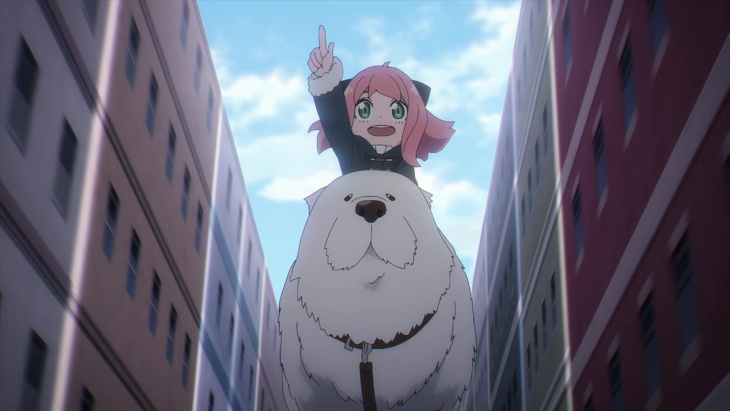
This season picks up where the previous one sort of left off. The last season had ended on an episode that was decent, but could best be described as a one-shot. However, the penultimate episode had teased the introduction of a precognitive family dog, and that’s where the story picks up. The dog, Bond (because of course), isn’t a game changer for the franchise, but like most characters the show introduces, he adds a nice dimension both emotionally and comedically. The same can also be said for the character of Fiona Frost, a member of Twilight’s organization with a vested interest in his operations. The stories which introduce her and Bond make up some of the strongest parts of this season. The show tends to ride a fine line between just silly enough and too ridiculous to be tolerated. My least favorite episode of Part I was episode 5, because it fell firmly on the side of being excessively ridiculous. Fortunately, even if this second installment is filled with wacky hijinks and insane intrigue, it rarely sheds the subtly dark undertone of a world that could fall apart.
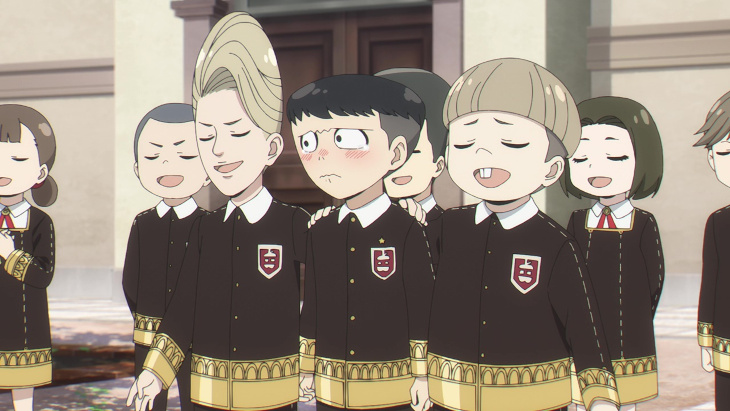
It may seem weird to say this, but when I think back on Shonen Jump titles I’m familiar with, Spy x Family’s comedic charm most closely resembles One Piece‘s. Both series construct outlandish worlds with ludicrous scenarios and insane personalities, but both use strong characterization as a foundation to ensure that the audience can remain emotionally invested in the cast. This allows them to be simultaneously dramatically compelling and completely nuts. Does it make sense that the fate of a Cold War peace is potentially dependent on overcoming a group of terrorists strapping bombs to dogs or winning an underground, high-stakes tennis tournament? Absolutely not! Despite that, it’s not hard to be invested in the adventures of our leads as they navigate this insanity. The show’s comedy remains dependent less on surprise and more on deft execution. I’m not going to spoil anything, but most fans will probably anticipate Fiona Frost’s primary motives as soon as she’s properly introduced, but it didn’t make her plots and machinations any less hilarious. The only points where the comedy sometimes falls flat are the stories that focus on a character’s interactions independent of the rest of the cast or the larger plot.
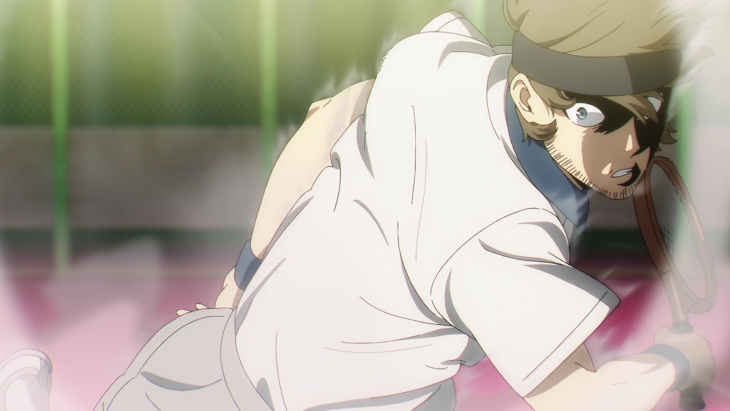
The production remains top tier, with Wit Studio and CloverWorks delivering a crisp, fully realized and fully bonkers world. Generally comedy series don’t have as many opportunities for sakuga moments as their more serious counterparts, but Spy x Family serves as an exception to that rule via its premise. There are plenty of opportunities for action shots and wild antics, and the studios use these occasions to show off their strengths. It’s also worth noting that the OP and ED far exceeded the quality of their predecessors. I noted in my review of the first half/season that I didn’t think those openings and endings would stick firmly in my memory. I may have been overstating it slightly when I suggested I probably wouldn’t remember them by the end of the year, but just barely. The same can’t be said about these new installments. Both the opening and ending for this half/season draw upon the heartwarming family elements with their visuals, so while the music may not stick in my memory for too long, the art direction certainly will. As one might note from my affinity for Horimiya’s ending credits, I can be a sucker for these concept-driven EDs that hit a delicate emotional tone.
Before I wrap up, a few Notes and Nitpicks:
- My least favorite episode of the season/half was episode 7/19, A Revenge Plot Against Desmond/Mama Becomes the Wind. There are a decent quantity of episodes this season which technically contain two separate stories, but episode 7 didn’t even have a through-line connecting its two. Both narratives are bland and predictable, and neither one offers its characters room to interact with the rest of the main cast. I find the bite-sized stories work best when the characters still get to bounce off each other, as that can elevate the comedy.
- No joke, when I try to remember how the first opening theme went, I struggle not to start thinking of the Chainsaw Man opening after the first two seconds.
- I will at least give Spy x Family credit for not ending on such a terrible note as Birdie Wing did. No, I’m not watching the second half of that. It’s a matter of principle (Also, I didn’t like the first part that much, so I’d rather not deal with it).
- I ended up skipping the seasonal award gimmick this time, because frankly, while Spy x Family was great, I couldn’t think of an award to give it that would be snatched up by Mob Psycho 100.

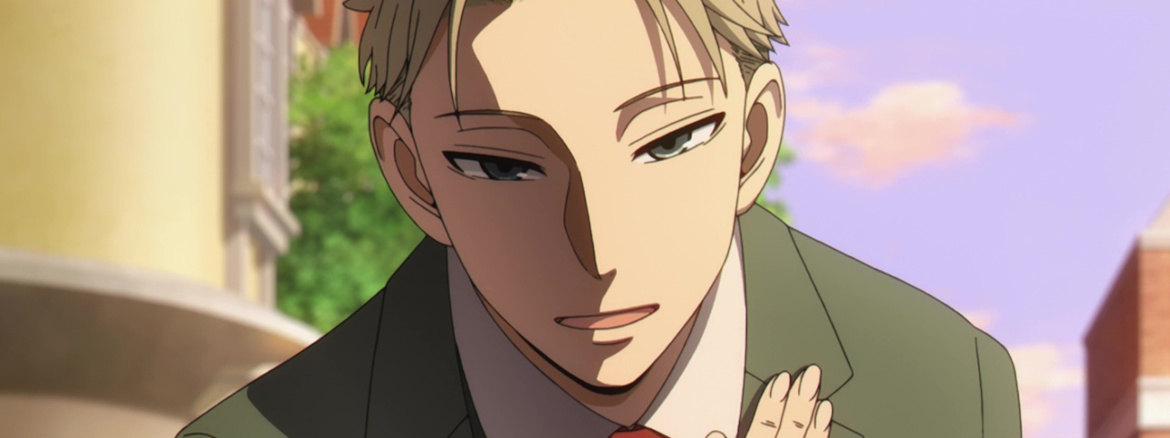
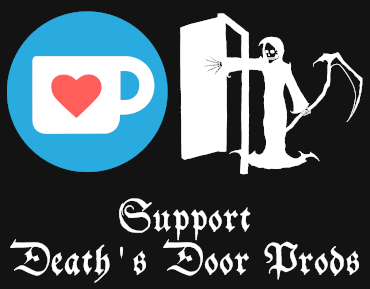

Add comment